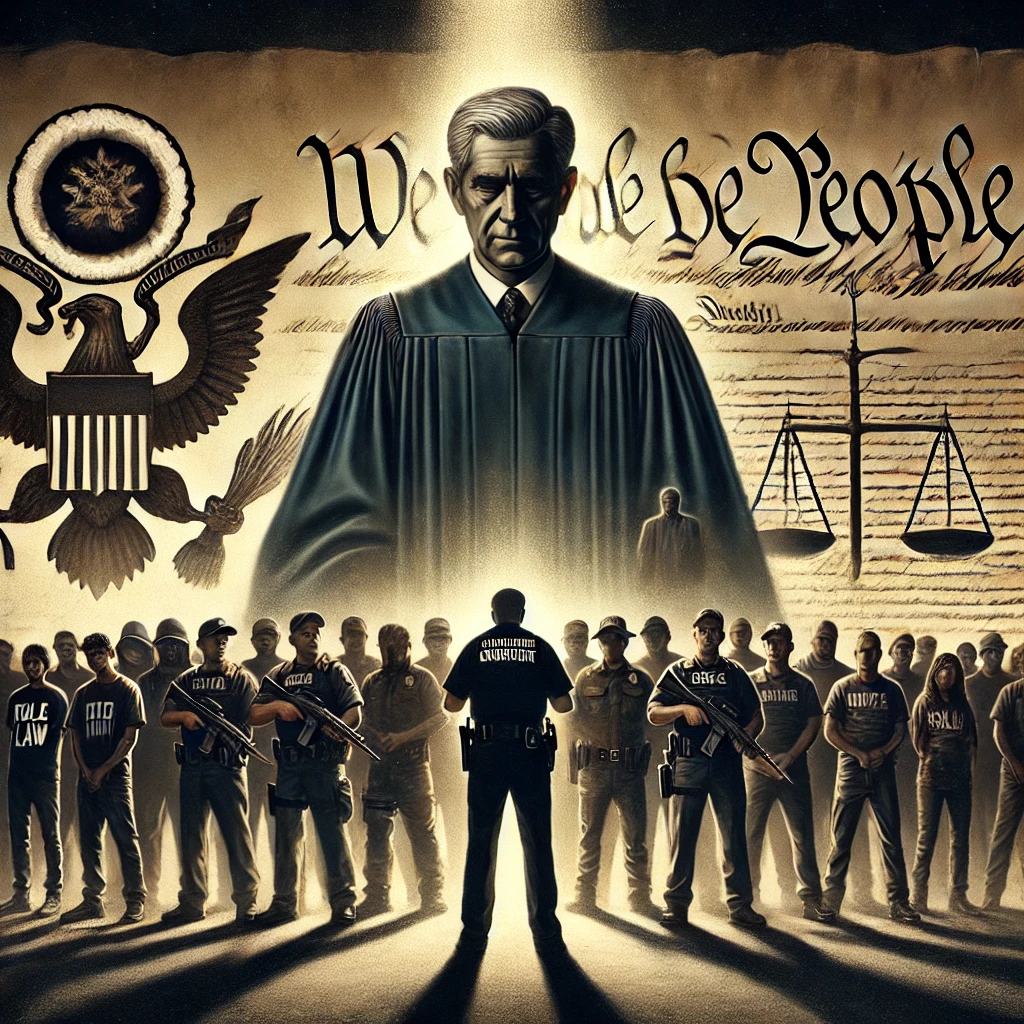By Ronald P. Bouchard Jr.
On March 15, 2025, Judge James E. Boasberg issued an order halting the lawful deportation of over two hundred sixty foreign nationals alleged to be members of Tren de Aragua, a violent transnational gang known for murder, extortion, and human trafficking. This order directly obstructed executive enforcement of the Alien Enemies Act and contradicted a recent Supreme Court ruling that affirmed the administration’s authority to proceed.
But Judge Boasberg didn’t stop there. He went further, charging officers with criminal contempt for carrying out those lawful orders.
Why This Matters to Every American
This isn’t about political opinion or personal ideology. This is about the law.
It is about whether judges are bound by the Constitution. It is about whether federal officials can protect violent criminals from lawful deportation. And it is about whether you, the People, still hold the final say in the operation of your government.
The Law Is Clear: Judges Have Limits
According to Article III of the Constitution, judges do not possess unlimited discretion. They are required to operate within their jurisdiction, applying law, not creating it. As John Locke wrote:
“The legislative or supreme authority cannot assume to itself a power to rule by extemporary, arbitrary decrees.” (§135)
Judge Boasberg is not the legislative branch. He is not the executive. His duty is to “declare what the law is and whether consistent with the law of God, and the fundamental or constitutional law of society.” (The State v. Post, 20 N.J.L. 368, 370 (1845)), not override the lawful authority of the President and the Supreme Court.
Who Was Judge Boasberg Protecting?
Let’s ask the question plainly:
When a judge shields over two hundred violent gang-affiliated foreign nationals from lawful removal, who is he really representing? The American people? The Constitution? Or foreign criminals?
The public deserves a real answer.
Is This a Crime?
Federal law (8 U.S. Code § 1324) prohibits knowingly harboring or shielding illegal aliens. If Judge Boasberg issued an order with the effect of obstructing federal enforcement against violent foreign nationals, he may have crossed into criminal conduct. If a citizen obstructed deportation of gang members, they would face prosecution. No public office should provide immunity from the law.
Preemptive Rebuttal: Do Illegal Aliens Have Constitutionally Protected Rights?
It’s often argued that “illegal aliens have constitutional rights.” That is a misunderstanding of the law.
Yes, the Constitution uses the term “persons,” and in narrow contexts—like criminal prosecution or civil procedure—certain minimal due process protections may apply. But that does not create a right to remain in the country, nor does it place unlawful entrants under the full protections meant for citizens or those lawfully present.
If someone breaks into your house, the police don’t ask whether they were served legal papers before removing them.
They don’t pause and say, “Wait—we need to give you due process first.”
They remove them, because the person is trespassing.
The same principle applies here.
Unlawful aliens have not been invited. They have not entered by consent. They are not under the jurisdiction in the lawful sense. Therefore, they do not gain constitutional shelter from removal—especially not from a judge acting outside his bounds.
As Locke wrote:
“No government can have a right to obedience from a people who have not freely consented to it.”
And as the Supreme Court affirmed in Kleindienst v. Mandel:
“When the Executive exercises this power… courts have no judicial authority to second-guess the political branches.”
So no—illegal aliens do not have a constitutional right to remain in the United States. They are not immune from lawful removal just because they are physically present.
The People’s Notice: Correcting the Record
A lawful Notice has now been issued to Judge Boasberg, citing foundational principles from the Constitution, Locke, Vattel, and established U.S. law. It demands he:
– Identify the lawful authority for obstructing deportation of violent criminals
– Justify charging federal officers for following lawful orders
– Cease interference outside his constitutional jurisdiction
If he fails to respond or rebut these claims with lawful evidence, then his actions stand as unlawful and liable under the rule of law.
The Bottom Line
This isn’t just about one judge. It’s about restoring the rule of law. When a single federal judge blocks constitutional authority, shields violent foreign actors, and criminalizes those carrying out lawful duty, it’s not justice, it’s rebellion.
The People are the masters. Government is the servant. That includes judges.
And when the law is violated, it is not just our right, it is our duty, to correct it.
Published on April 17, 2025

About the Author:
Ron Bouchard is a Strategic Interventionist, Freedom Strategist, and leading expert in Constitutional and Fundamental Law. He is a dynamic speaker, trainer, and author, and co-founder of WeThePeople2.us, where he advances public education on history, common law, and the restoration of self-governance. Ron is known for his principled advocacy, deep historical insight, and unwavering commitment to natural rights and the sanctity of life. His work equips others with lawful and moral clarity in the face of modern overreach.


Thanks, Ron. On target as usual. IMO, it is time for criminal proceedings against him for usurpation of power, ie, treason.